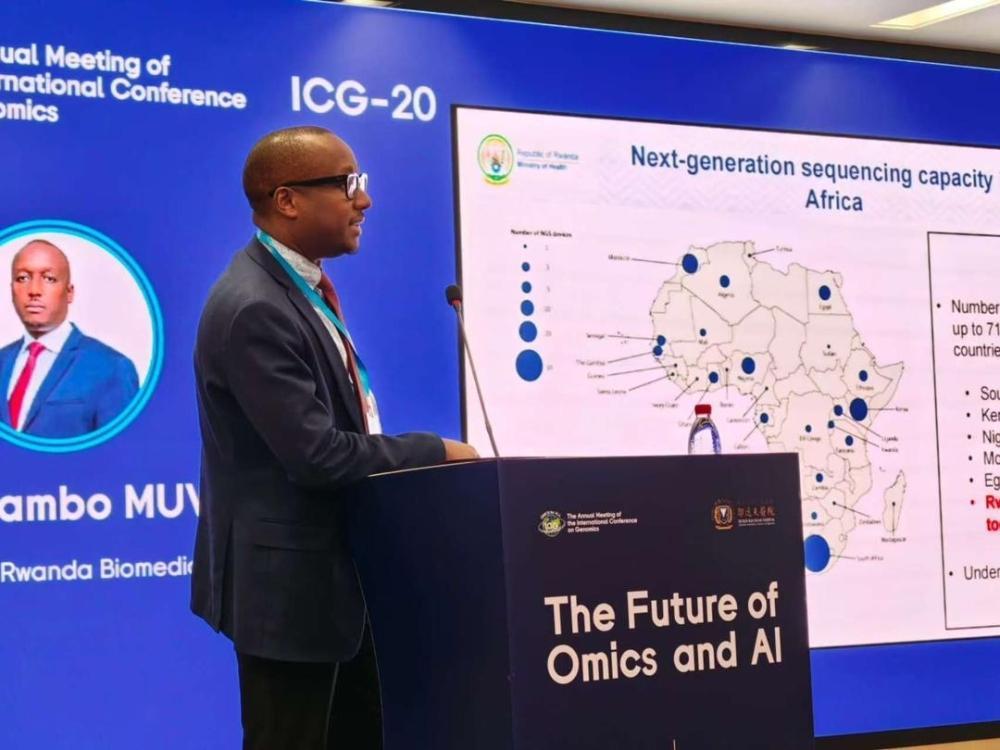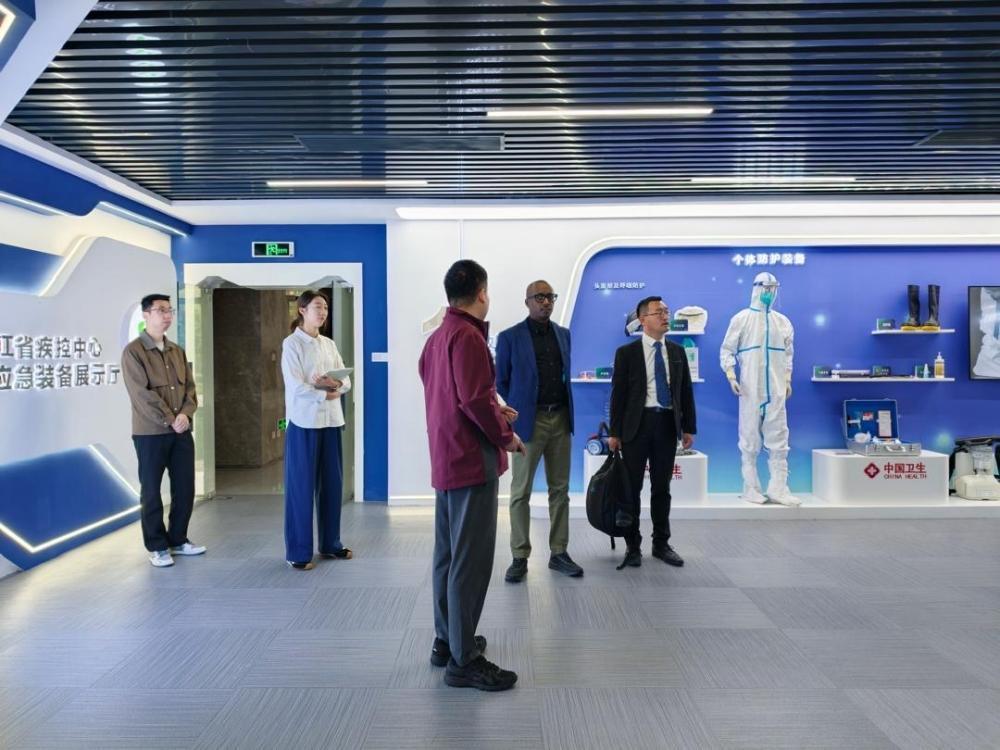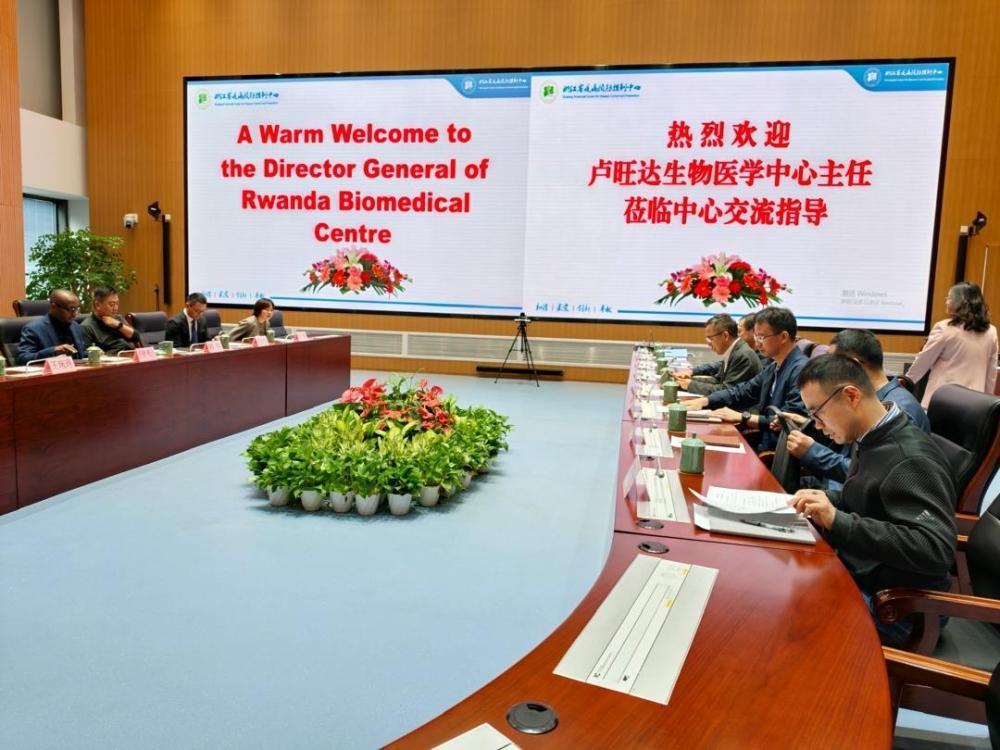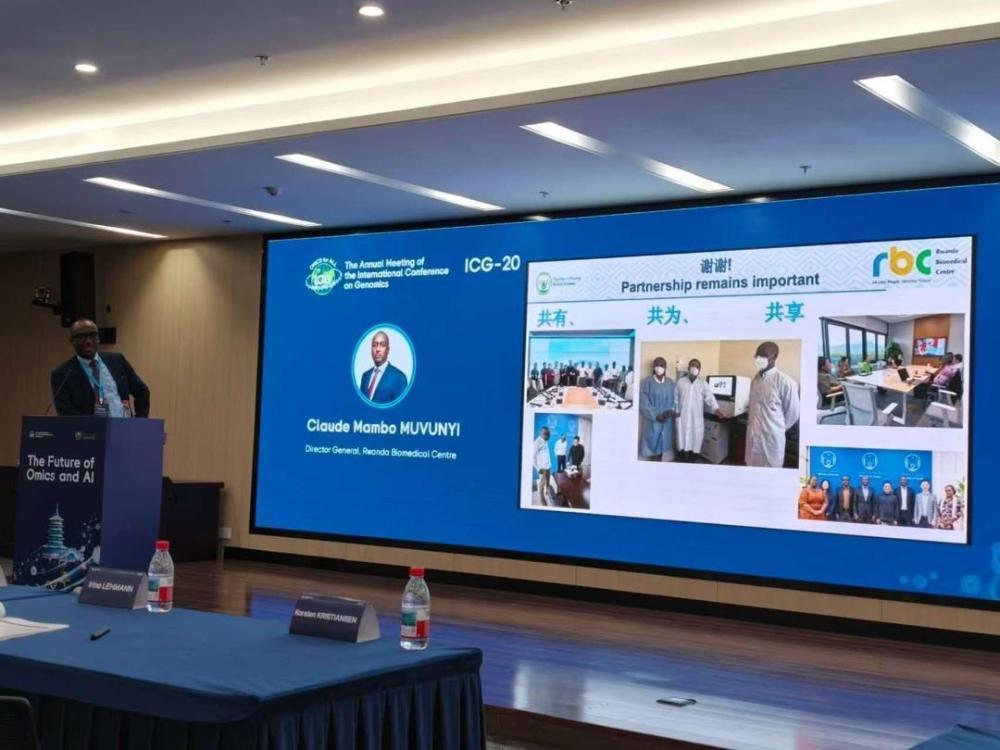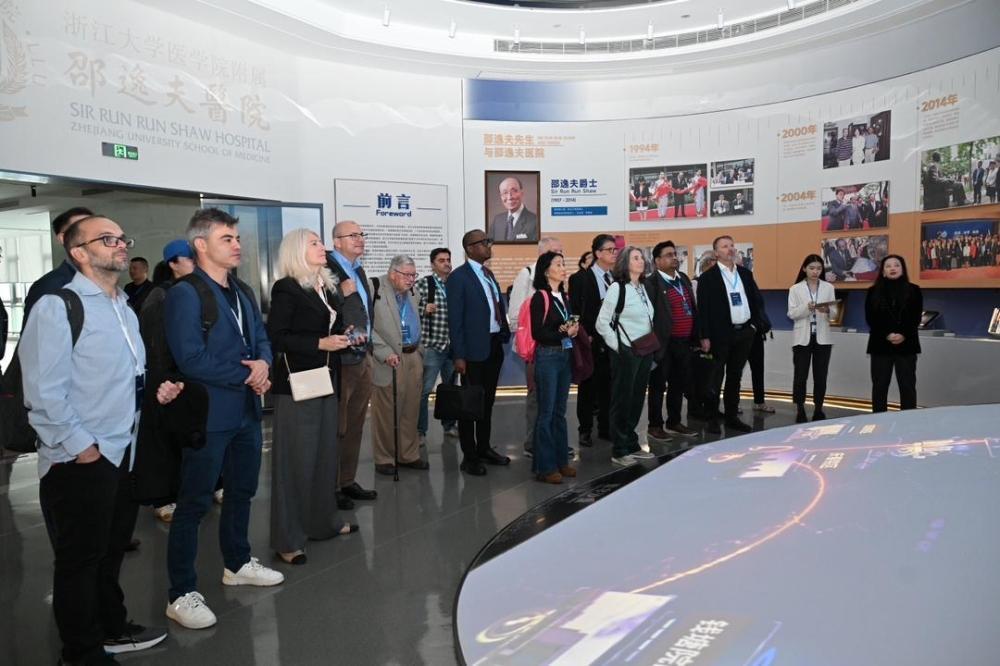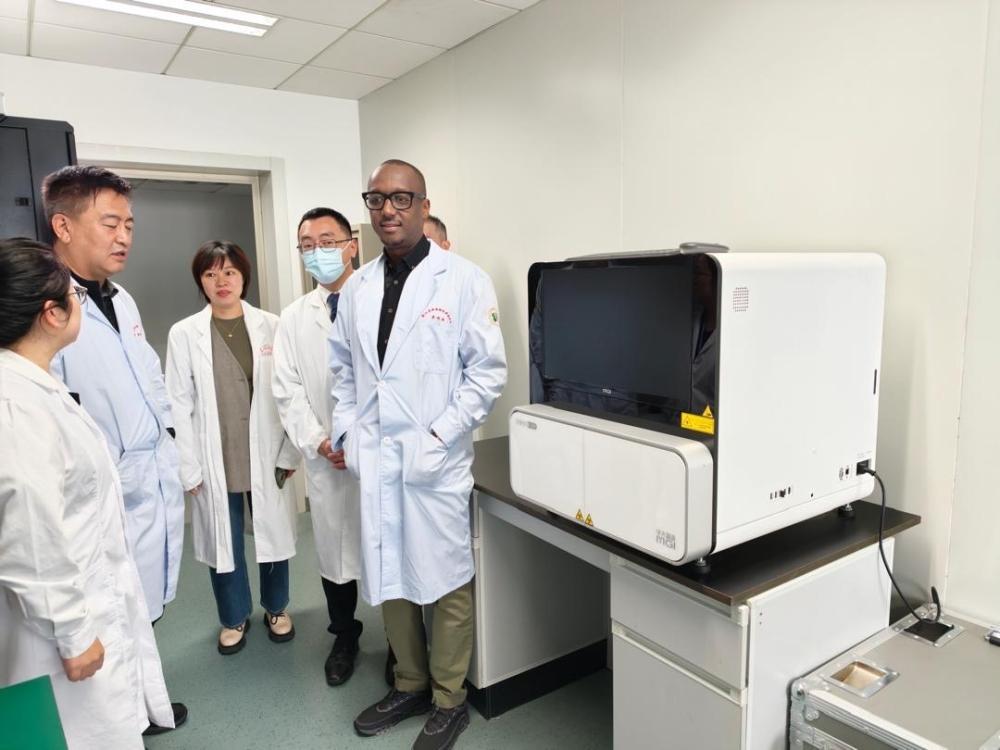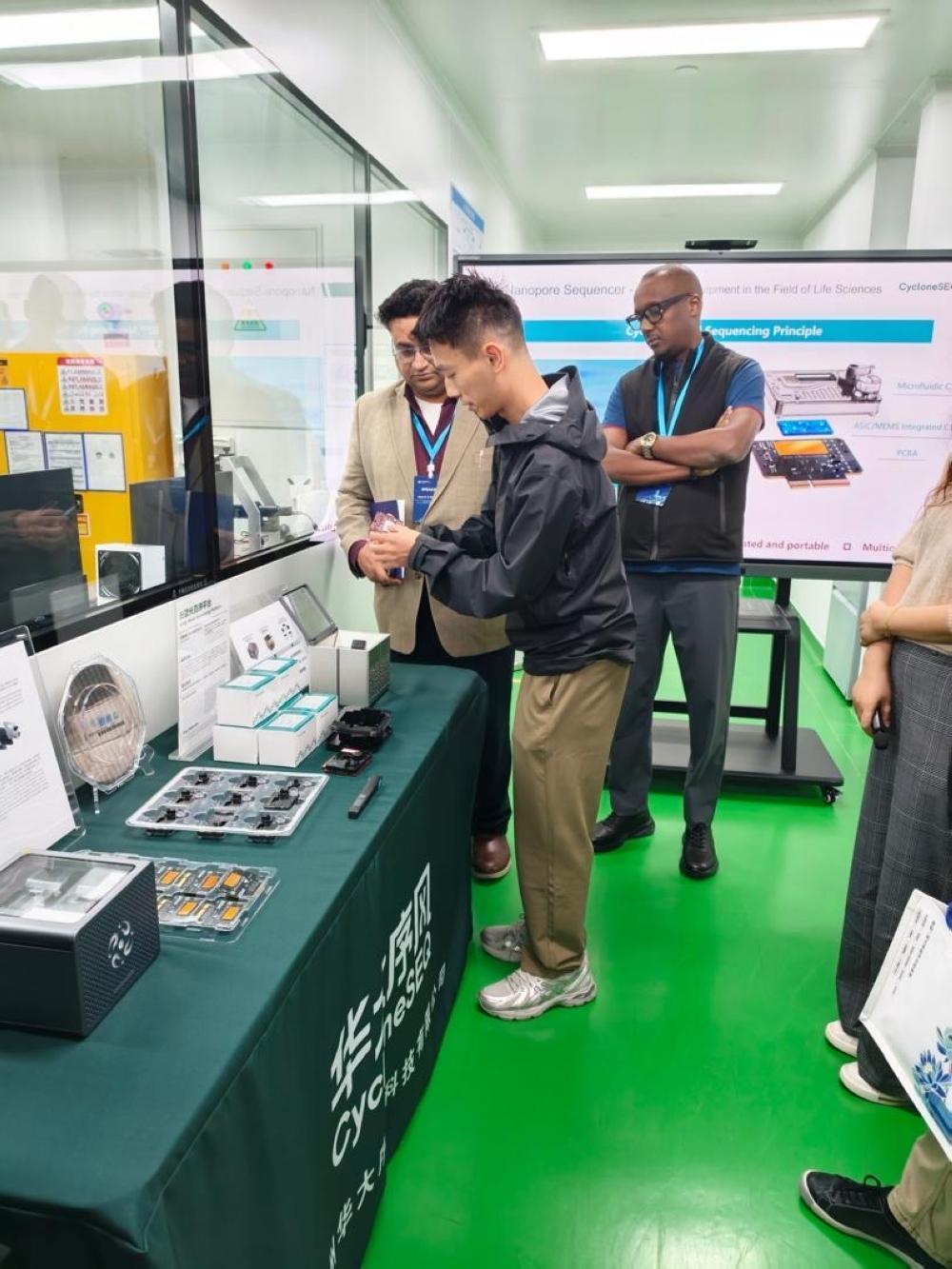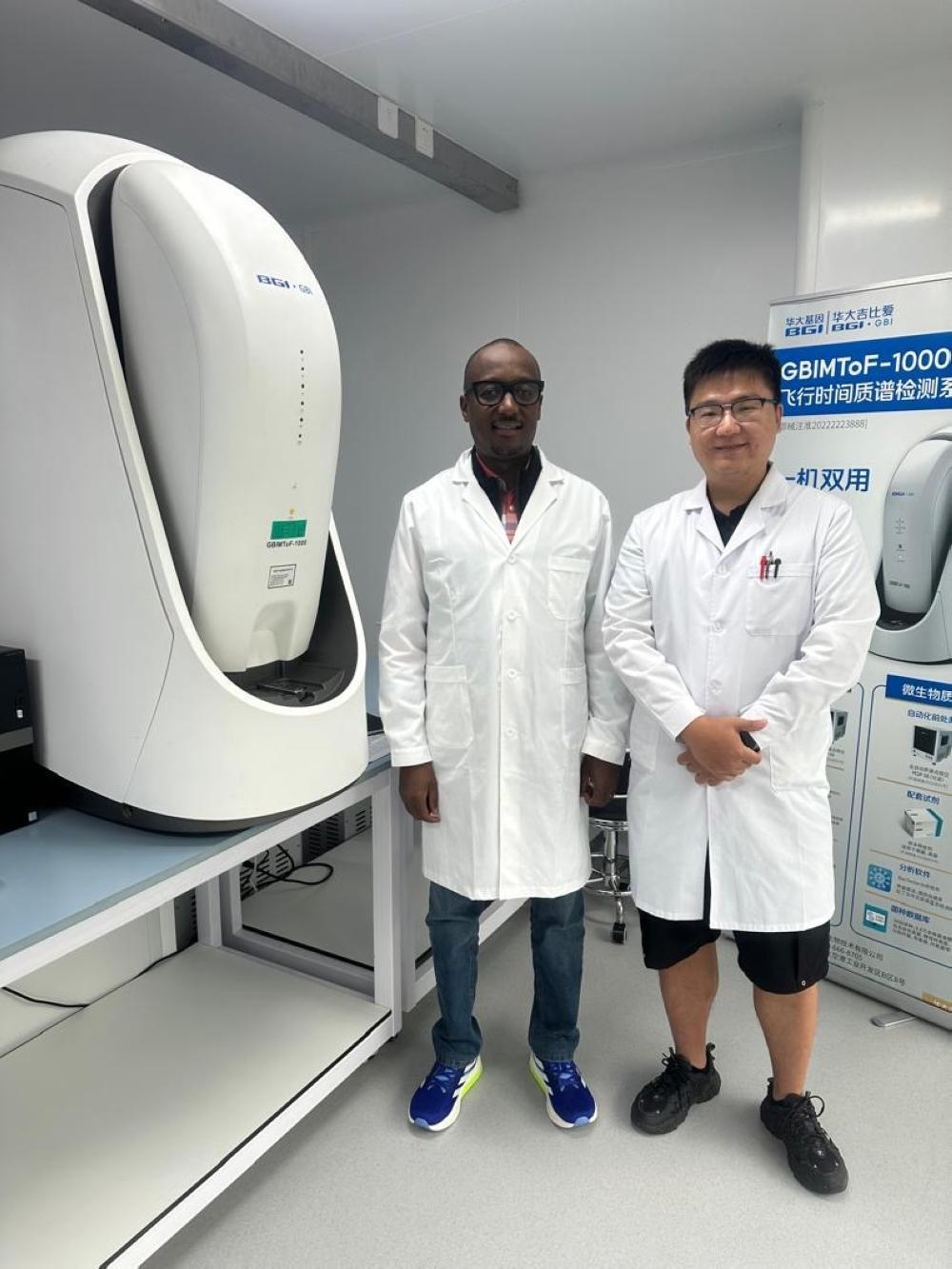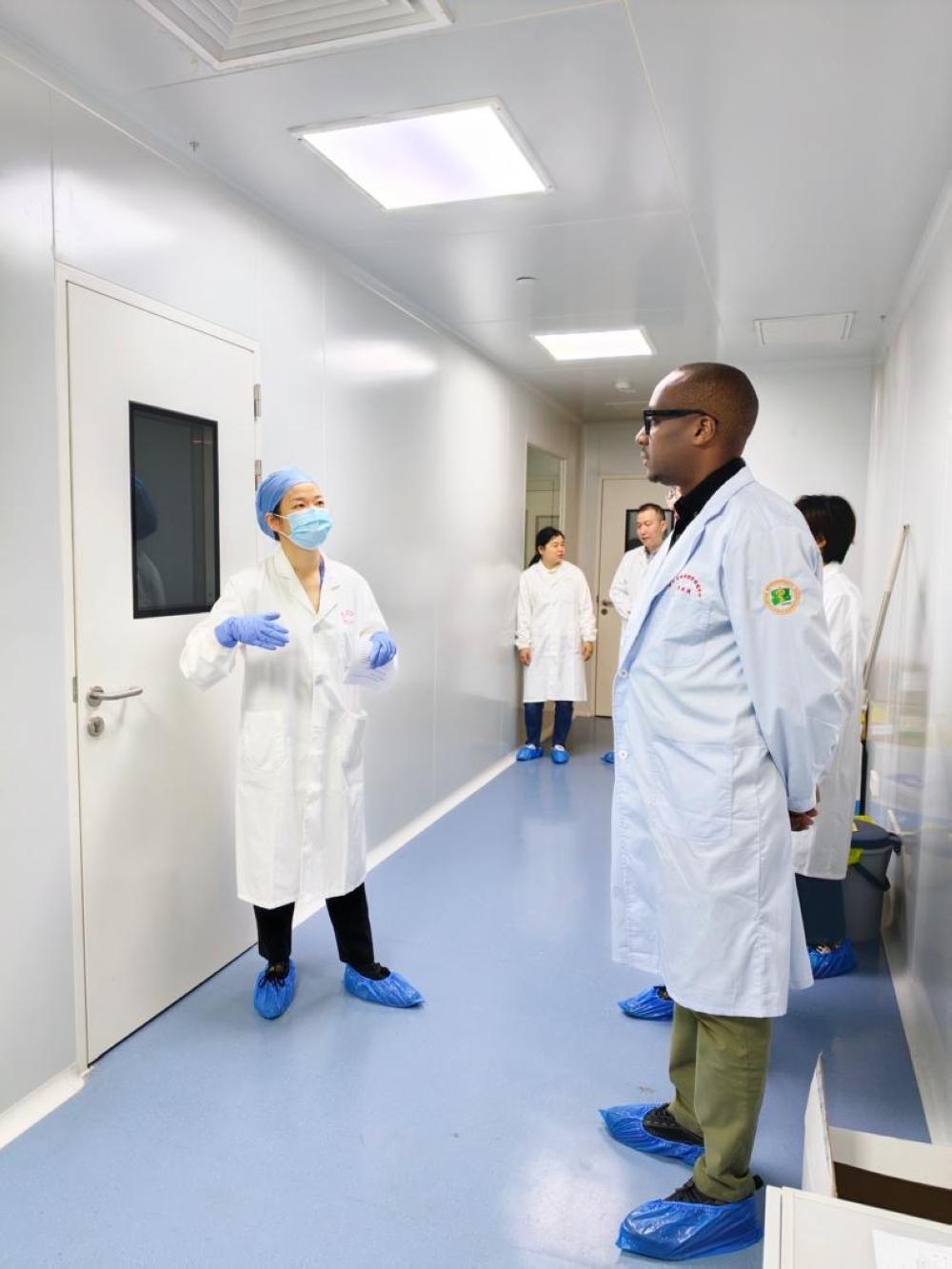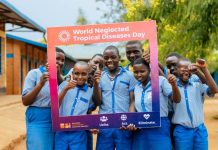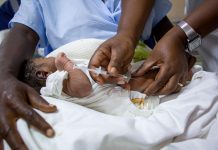Africa-Press – Rwanda. Rwanda is exploring partnerships with global institutions to advance its genomic research, training programs, and technological capacity in precision medicine, officials said.
This was highlighted during a week-long visit by Dr Claude Mambo Muvunyi, Director General of the Rwanda Biomedical Centre (RBC), to leading Chinese research and health institutions in Shenzhen and Hangzhou.
During the visit that ended on October 25, Muvunyi held strategic discussions with executives and researchers from BGI Genomics, BGI Research, and BGI College (subsidiaries of the world’s leading life sciences and genomics company BGI Group).
Their discussions focused on potential collaboration in genomics, joint research, capacity building, and technology transfer.
These engagements, he said, are part of Rwanda’s ambition to build a resilient, sustainable healthcare system powered by AI and bioinformatics.
“We are exploring how partnerships in genomics and precision medicine can strengthen our disease surveillance, diagnosis, and treatment capacity,” Muvunyi told The New Times.
“Our goal is to localize advanced genomic research and training to make Rwanda a regional hub for precision health.”
While touring BGI’s GigaLab, central clinical laboratory, and other research facilities, Muvunyi observed how genomic data is being used to enhance clinical decision-making and public health planning.
He also delivered a keynote address at the 20th International Conference on Genomics (ICG-20), where he presented Rwanda’s experience in genomic sequencing during the COVID-19 pandemic.
“Although there are gaps in pathogen genomics for surveillance across Africa, Rwanda built sequencing capacity during COVID-19,” he said. “That foundation helped us identify and trace the Marburg virus in bats. Genomics play a role in strengthening public health resilience.”
In Hangzhou, Muvunyi met with the Zhejiang Centre for Disease Control and Prevention (CDC) team to explore collaboration on disease surveillance systems, epidemic preparedness, and non-communicable disease (NCD) control.
The Zhejiang CDC shared insights into its real-time reporting mechanisms, multisectoral coordination model, and its prevention strategies targeting what they call the “three highs”; hyperglycaemia (high blood sugar), hypertension (high blood pressure), and hyperuricemia (high level of uric acid in the blood); and now a “fourth high,” obesity.
“The Zhejiang CDC model provided valuable lessons for Rwanda as we enhance our surveillance and emergency response capacities,” Muvunyi noted. “We aim to adopt adaptable systems that integrate genomics into public health management.”
The visit also included discussions with Pékin Teaching University of Shenzhen to explore collaborative programmes in cervical cancer screening and research training for Rwandan scientists.
According to Léon Mutesa, a professor in the Department of Clinical Biology at the University of Rwanda’s College of Medicine and Health Sciences, the growing focus on genomics will play a transformative role in early disease detection and prevention.
“Certain diseases, such as breast, cervical, prostate, and colon cancers, can be hereditary because genetic material is passed from parents to children,” he explained. “Genomic techniques enable early detection by identifying mutations that may lead to cancer later in life.”
He added that even non-hereditary cancers can be detected earlier through genomic screening, which analyzes a person’s DNA to pinpoint early molecular changes before symptoms appear.
“All cancers take time to develop,” Mutesa said. “Detecting them early gives doctors a much better chance to manage or even prevent them.”
Looking ahead, Mutesa said that Rwanda plans to launch a genomics-focused academic programme next year, beginning with 25 students and two PhD candidates specializing in cancer genomics research.
The programme will complement ongoing national efforts to establish comprehensive genomic infrastructure and foster local expertise.
Strengthened partnerships between Rwanda and leading Chinese genomic institutions, will enhance technical capacity in AI-driven health research, and the development of a roadmap for implementing genomics-based public health interventions.
“This engagement represents another milestone in Rwanda’s journey toward innovation-driven healthcare,” Muvunyi emphasized. “By investing in genomics, we are not just improving research; we are preparing for a future where healthcare is more predictive, personalized, and precise.”
For More News And Analysis About Rwanda Follow Africa-Press

